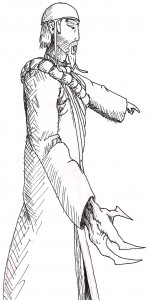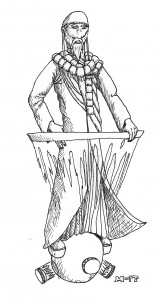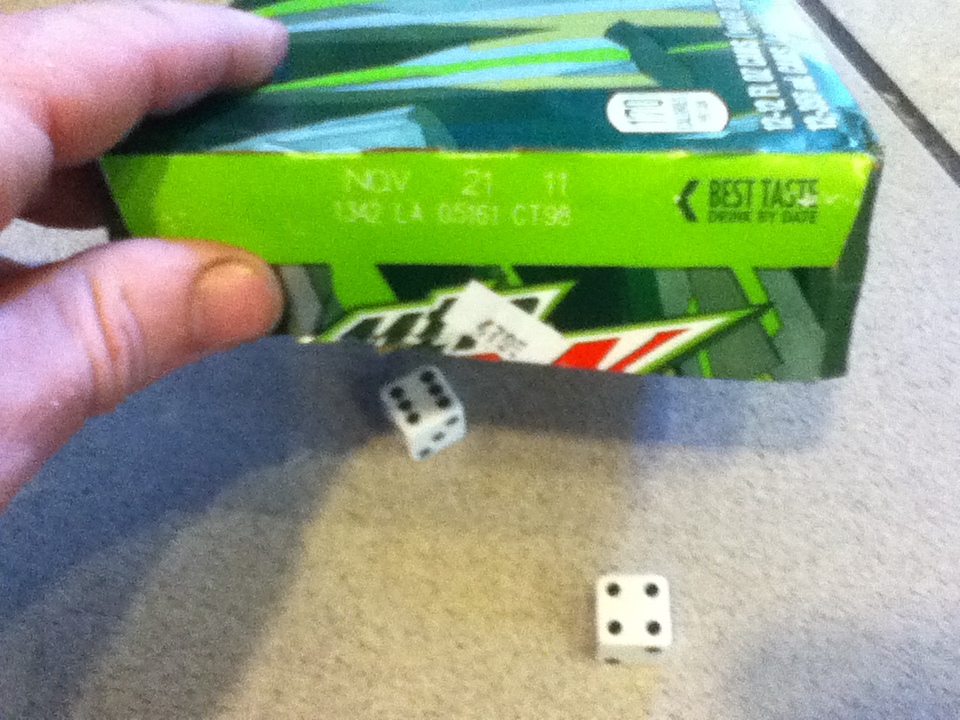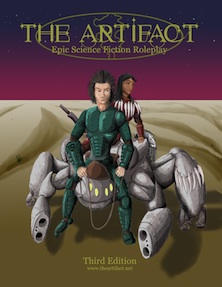So your players have characters, you’ve played a starter game and now you need to start thinking about the next game. You may have followed the advice to jump straight into action for the last game. Now is the time to start flexing your story muscles.
Coming Up With A Story
I’ve heard a few first time GMs panic about trying to come up with a “good” story. If you try and come up with something worthy of a novel, you’re going to be frustrated and things will not happen the way you want them to. You only need to come up with a few story elements, your players fill in the blanks.
So what are those elements? There are three basic elements, goals, hooks and challenges. Lets define each one.
Goals – The goal is what the player characters need to do to ‘win’. Things like “Rescue the princess and escape the castle.”
Hooks – A hook is something that draws the players in (think of a fish hook). This concept is a bit more nebulous, a hook that draws in one player, may not interest another player.
Challenges – These are things that stand in the way of the player characters getting to their goal. A challenge can consist of many things. It could be a lack of information (or too much). It could be a mountain range is in their way or it could be someone (or something) literally standing in their way, challenging them.
The good news is that all these elements are pretty intuitive. You may already have thought about some of them already but didn’t know how to put them together. Players may even set their own goals, which can make things easier for you, although usually they will look to the GM for some kind of goal or steps to reach their goal.
I usually recommend three challenges per game. This is usually what most groups have time for if the challenges are well matched against the characters. If everyone is completely focused, they might be able to get through them in two to three hours. If there’s a lot of chatter, it could take longer, usually twice as long. Don’t try to force the players to be completely focused though. I’ll try to explain why in a later post.
The simplest hooks are rewards for reaching the goal. Something like “I’ll pay you five thousand dollars to deliver this package.” actually has two hooks in it. The most obvious one is the lure of the money. The second one is the question of why would someone pay that much to deliver a package? Both may arouse the interest of the players. Hooks in essence are the story set up.
When it comes to reward hooks, don’t blow the players out of the water with your offer. You want the reward to be interesting enough but don’t make the players independently wealthy on the first game. Some players may even be motivated by gratitude. A town approaching them and pleading for their help may be enough for them. Just remember, you have to really give them the reward, the town needs to be grateful. The kind of gratitude that the player characters can come and visit the town any time and people will feed and shelter them for free.
So now you need to start thinking about what elements you want to put into your game and how they go together. There are several ways of doing this. You can let the goal define the other elements. With this, you take a goal and then try to imagine why the players would want to achieve it, this gives you the hooks. Then you think about what would get in their way and this gives you the challenges. You can work this in any combination. The hook can lead to a goal and then challenges or a thinking about a particular challenge and why it’s there and why the players would want to overcome it connects a hook and a goal to it.
There are of course other story elements, like twists. You can include them at this point but I’d recommend against it for now. A twist is only fun when you’ve experienced things straight before. If there’s always a twist, the players come to expect it and it’s no longer interesting, it’s a pain. I’m not saying you can’t, it’s just that you have a lot of other things to learn to balance now, you don’t want to have worry about gauging player frustration yet because you did a bait and switch on the player characters. That’s a good way to make sure there isn’t a third game. For now stick to your word, if the players have been promised a reward, give them the reward and a hearty well done. Get them to feel good about the game, you’ll get to confound them later.
Details
Now that you have the outline of your story in place, you need to start thinking about details. Things like locations that will show up in your game. Maps for those locations are a really good idea especially starting out because you’re not practiced at explaining where things are in relation to the characters. It’s harder than it sounds, getting it wrong is the surest way to have players demand a do over. I’ve GMd for decades and I still get it wrong from time to time.
Another detail to have in place is quick access to NPC stats and names. If an NPC is human be ready for the players to ask their name. It may sound trivial for Guard #2 to have a name but it will quickly burst the player’s suspension of disbelief if you name all the NPCs “Joe”. On the other hand, if you respond with an authentic sounding name for a meaningless guard, your players will be immersed in the story. Names are powerful to a story.
You might groan and think “I can’t come up with names for everyone.” You don’t have to, just come up with a list of five to ten names that you can give to the players when they ask. Each game, replace the ones you’ve used with new ones.
Up Next – Player Management







 The Free RPG Blog
The Free RPG Blog